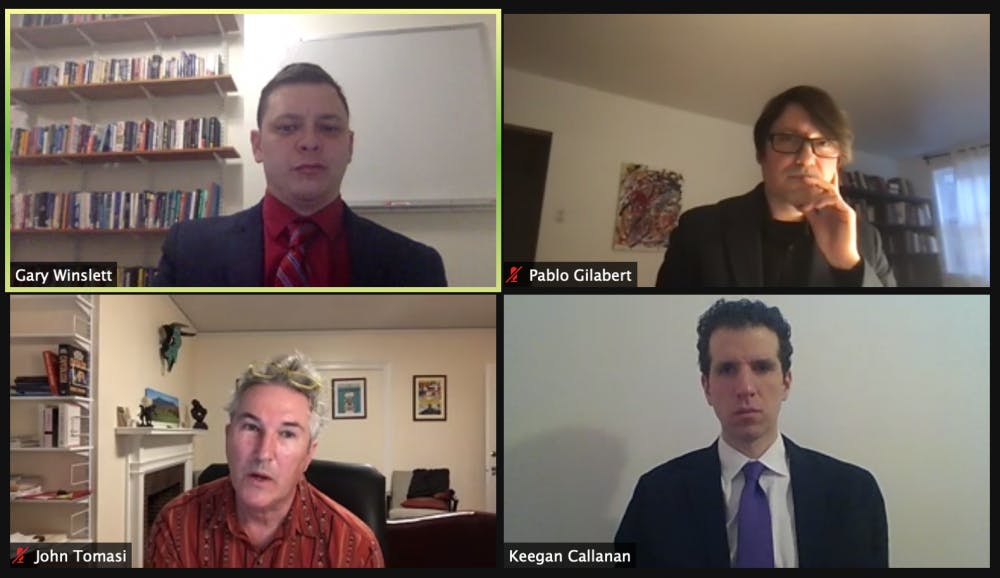Visiting speakers Pablo Gilabert and John Tomasi spoke at a webinar titled “Are Social Justice and Capitalism Compatible?” on March 10. Political Science professors Gary Winslett and Keegan Callanan moderated the event, which was sponsored by the Alexander Hamilton Forum and Department of Political Science.
Tomasi, professor of Political Science and Philosophy at Brown University, argued that social justice and capitalism are compatible in a world where society is structured upon what he called a “market democracy” model.
Tomasi outlined a philosophical binary between an anti-capitalist and pro-justice left — consisting of Rawls, Marx, and Chomsky — and a capitalistic right — defined by the work of Freedman, Locke and Hayek.
Tomasi, who described himself as “enthusiastically capitalistic… and maybe more foundationally enthusiastic about social justice” argued that economic freedom and social justice are not mutually exclusive but rather work together in an ideal scenario.
“There exists an ‘undiscovered frontier’: conceptions of social justice that are also enthusiastic about private economic liberties,” Tomasi said. He also advocated for “prioritarianism,” which stipulates that the ultimate goal of government should be to achieve the best outcomes for the most disenfranchised in society, as opposed to a view of social justice that is focused on the pure equality of people.
Gilabert, a professor of Philosophy at Concordia University in Montreal, disagreed with Tomasi and argued that it is not feasible for social justice and capitalism to functionally co-exist. He outlined traits of capitalism that inhibit social justice: lack of equal opportunity, exploitation, domination and conflict with democracy.
“Capitalism allows significant inequality in wealth and power, affecting how our children grow up,” Gilabert said. He explained how capitalism fundamentally fosters inequality between workers and capitalists. “Bargaining power is dramatically asymmetrical, except in rare cases of a skilled worker in a tight labor market ... capitalists can and do take unfair advantage of workers,” Gilabert said.
Gilabert also analyzed alternatives to capitalism, noting that socialists often depend on the same principles that capitalists endorse: freedom, democracy and community. Even though Gilabert questioned the efficacy of socialism, this didn’t change his main argument that capitalism inhibits social justice.
The two speakers then took questions from attendees and responded to each other's arguments.
“Socialist regimes have done terribly at protecting political freedom,” Tomasi said, referring to a slide showing the leaders of states including the Soviet Union and Cuba. “Do you think they had political freedoms?” Tomasi asked Gilabert, referring to regimes such as the Soviet Union and Cuba.
“In those regimes, the means of production were not under democratic control… If they are socialist, it’s not the socialism I cherish,” Gilabert responded.
One student asked the speakers who should bear the responsibility of building these societies.
“What gives me most hope for progress is commitment to a quality of mind, a stubborn open-mindedness,” Tomasi said in reply. “People should be impatient of the ideologies of their elders.”

Lily Jones ’23 is an online editor and senior writer.
She previously served as a Senior News Writer and SGA Correspondent.
Jones is double majoring in Philosophy and Political Science. She also is an intern for the Rohatyn Center for Global Affairs and on the ultimate frisbee team.




